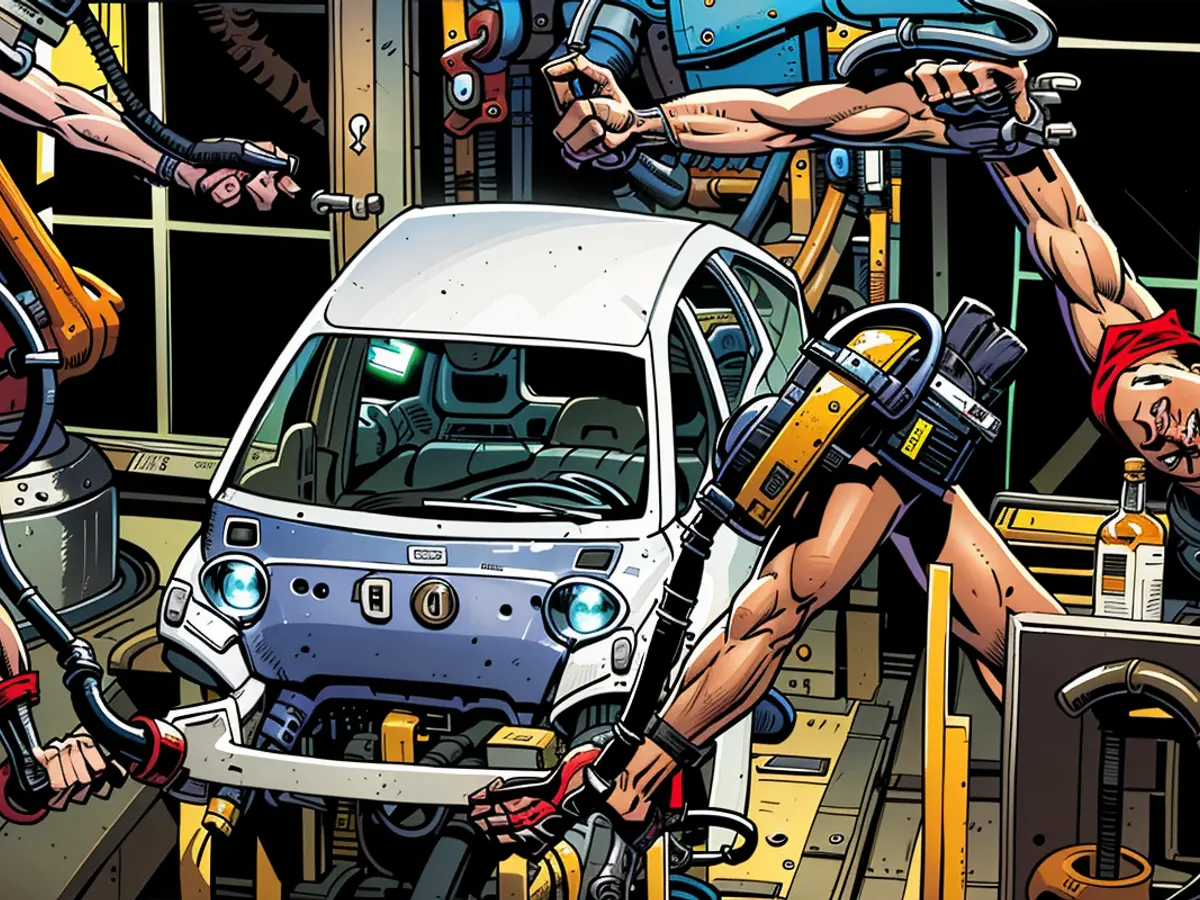Competition - E-car tariffs: EU and China face intensive talks
After the introduction of provisional additional tariffs on Chinese electric cars, Brussels and Beijing are engaged in intense negotiations. Both sides have expressed their interest in finding a solution, but whether this will succeed is uncertain. Vice Chancellor Robert Habeck (Greens) had personally negotiated in China nearly two weeks ago but failed to make a breakthrough. The parties now have four months to make a decision on whether to permanently impose high special tariffs.
The EU Commission had previously conducted an extensive investigation into whether electric cars from China benefit from subsidies that distort competition. The results of this investigation were published by the authority in a regulation over 200 pages long yesterday. From the EU's perspective, the matter is clear: there are unfair subsidies, causing harm to the European auto industry. However, the German auto industry sees things differently.
Many markets are taking stronger action against imports from the East
Other third parties are taking much more aggressive action against imports from the East. China is the largest automotive market in the world, but for Beijing, many markets have already become costlier. The United States imposed tariffs of 100% on electric cars in May, effectively blocking the market for imports from China.
"The Americans have closed their market now, just like Brazil, Mexico, and Turkey," said Commission President Ursula von der Leyen to Redaktionsnetzwerk Deutschland recently. Europe remains an attractive market for Chinese companies for the time being. A negotiated solution with Beijing is possible in Brussels.
The EU Commission's provisional tariffs are lower than, for example, those of the USA for some manufacturers: 17.4% for BYD, 19.9% for Geely, and 37.6% for SAIC. For other companies, 20.8% is planned, and for companies that did not cooperate in the investigation, a punitive tariff of 37.6% would apply. The tariffs come on top of an existing customs duty of ten percent.
Positive reactions from German MEPs
German MEPs view the Commission's approach - unlike German politicians in government responsibility - more positively. The chairman of the CDU/CSU group in the European Parliament, Daniel Caspary, spoke of a clear message: "The EU is not being naive in international trade." The chairman of the Internal Market Committee in the EU Parliament, Anna Cavazzini, sees the tariffs as a correct decision to protect the industry from unfair dumping.
However, this contradicts her party colleague and Baden-Württemberg Transport Minister Winfried Hermann. He said, "That's the dumbest idea of the EU Commission." He fears disadvantages for the German industry. Economy Minister Habeck and Finance Minister Christian Lindler (FDP) had urged that action be taken against dumping, but warned against a potential tariff race.
The chairman of the Trade Committee in the European Parliament, Bernd Lange, emphasized the importance of a constructive dialogue between Beijing and Brussels. "There are no winners in trade disputes," said the SPD politician.
In Germany, the EU Commission's approach is causing concerns in Germany as there is a fear of retaliatory measures that could primarily affect German car manufacturers. Additionally, German companies produce cars for export in China. FDP fraction vice Lukas Koehler stressed that the tariffs on e-cars can only be a temporary measure.
Vote on final tariffs
As long as a final introduction of tariffs is not decided upon, these do not have to be paid but only security deposits have to be provided. If the negotiations with China are not satisfactory, the EU Commission could propose the introduction of final tariffs. The EU states could only prevent the then proposed tariffs from being implemented if a so-called qualified majority opposes the proposal.
If such tariffs were to be introduced, some fear that e-cars will become more expensive. The vice president of the Central Association of German Automotive Industry (ZDK), Thomas Peckruhn, said: "For consumers, e-cars will become significantly more expensive, especially since the competitive pressure for European manufacturers is decreasing."
- Despite intense negotiations between Brussels and Beijing, the outcome of resolving the additional tariffs on Chinese electric cars is uncertain.
- The EU Commission has conducted an investigation into whether electric cars from China receive subsidies that distort competition in the EU market.
- Other markets, such as the USA, Brazil, Mexico, and Turkey, have already taken more aggressive actions against imports from the East.
- Commission President Ursula von der Leyen mentioned that the United States, China's largest automotive market, has closed its market for imports from China.
- German MEPs view the EU Commission's approach to tackling unfair practices in the automotive industry more positively than German politicians in government responsibility.
- Winfried Hermann, Baden-Württemberg Transport Minister, criticized the EU Commission's proposed tariffs, fearing disadvantages for the German industry.
- Bernd Lange, chair of the Trade Committee in the European Parliament, emphasized the importance of constructive dialogue between Beijing and Brussels to avoid trade disputes.
- A proposed tariff race could pose concerns in Germany, as some fear retaliatory measures that could primarily impact German car manufacturers.
- FDP fraction vice Lukas Koehler emphasized that the tariffs on electric cars can only be temporary measures.







